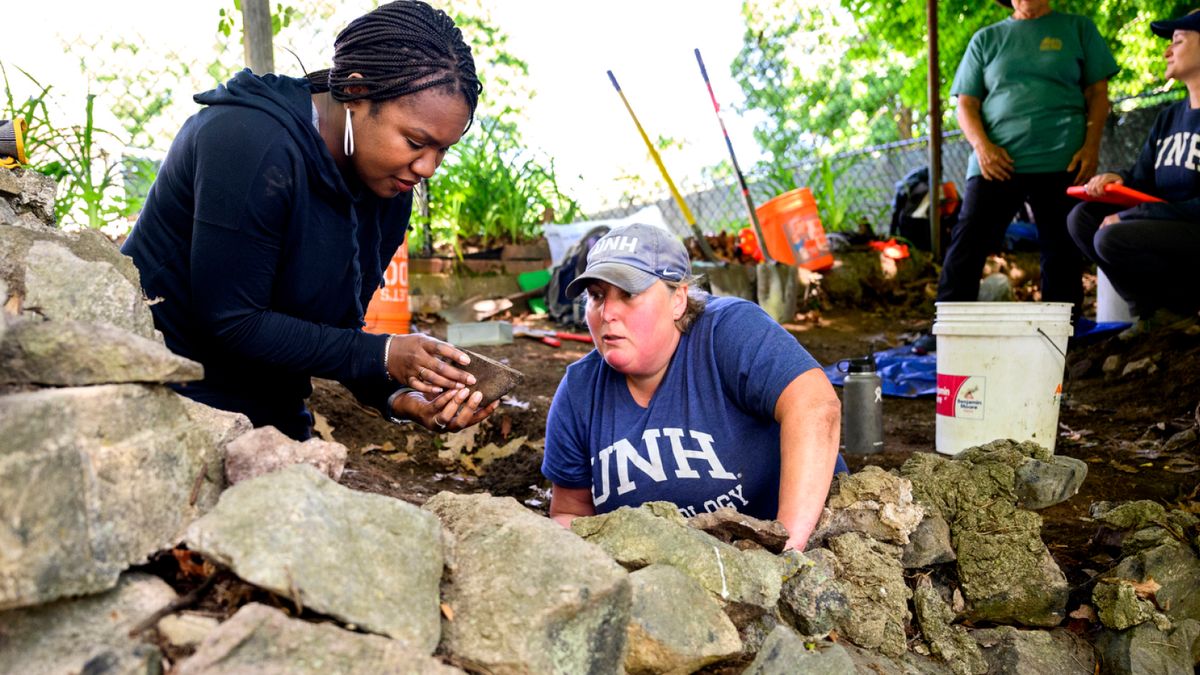Archaeologists may have discovered the foundations of the house of “King” Pompey, an 18th-century enslaved West African man in Massachusetts who became one of the first Black landowners of colonial New England after gaining freedom.
This discovery may help researchers better understand the festival known as Negro Election Day, when enslaved and free Black men voted for their own leader, who enforced laws and mediated disputes with the white community.
In the New England region, some of the people who were trafficked across the Atlantic Ocean in the early 1700s were of royal African heritage. They were brought to the area and forced to work at ports and on farms. In at least four colonies — Massachusetts, Connecticut, Rhode Island and New Hampshire — enslaved Africans maintained one of their customs: electing a leader known as a “king” or a “governor.”
One of these leaders, Pompey, may have been born a prince in West Africa and came to Massachusetts in bondage at some point in the early 1700s. Historical accounts suggest that Pompey was a community leader who hosted Negro Election Day events at his own property along the Saugus River just north of Boston, which he bought after being freed.
“King Pompey was an esteemed leader in the Black community but his home and property have always been a mystery,” Kabria Baumgartner, a historian at Northeastern University who is part of the research team looking for Pompey’s house, said in a statement.
Related: Enslaved people were kidnapped from all across Africa, rare look at DNA from colonial cemetery reveals
The researchers first scoured historical property deeds to learn that Pompey purchased 2 acres (0.8 hectares) of land along the Saugus River in 1762, where he built a small stone house for himself and his wife, Phylis (or Phebe, it’s unclear which is correct). The team then compared historical maps and newspaper articles with contemporary lidar-created maps — topography maps created from laser pulses shot from an aircraft — to narrow down the area of Pompey’s house using specific landmarks.
About 4 feet (1.2 meters) below ground, the team hit a foundation made of hand-chiseled river rocks, which matched descriptions in the historical records. “The big find was the handmade pebble foundation,” Meghan Howey, an archaeologist at the University of New Hampshire who is part of the research team, said in the statement. “I’m extremely confident this is a foundation from the 1700s and everything that points to this being the home of King Pompey is very compelling.”
Researchers aren’t sure exactly when Pompey was elected king, but historical records suggest he served in this position more than once in the 1750s, by which time he was hosting Negro Election Day at his own house.
Coinciding with the colonies-wide Election Day for white male property owners, in the mid-18th century Black people in New England gathered to select community leaders and to maintain ties with one another and with their African cultural heritage. The festival — which could last for up to a week — included music, dancing, singing and games. Participants wore fashionable clothing — often mimicking white people’s dress — ate special food like gingerbread and held parades.
“I’ve always been fascinated by those fleeting private and intimate moments outside of the watchful eye of an enslaver when Black people could be themselves and enjoy each other and be in community,” Baumgartner said.
In 2022, the Massachusetts legislature established the third Saturday in July each year as Negro Election Day, continuing a tradition that began more than 280 years ago.


